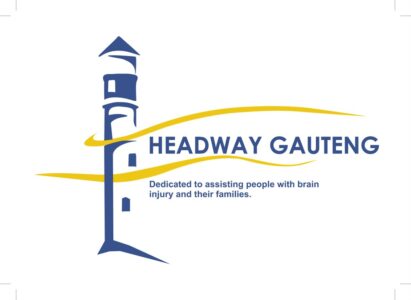Living with a brain injury reshapes not just one’s personal life, but also the dynamics within relationships. In this article, we delve into the intricate challenges individuals and their partners face in maintaining intimate connections post-injury, focusing on the profound impact of language and cognition.
Written By: Karyn Casey, Speech Therapist. B (Speech Pathology and Audiology) WITS DONALD GORDON CENTRE
Brain injuries bring about multifaceted changes, altering cognitive, emotional, and behavioural functions. These changes ripple through intimate relationships, influencing communication, decision-making, and emotional regulation. It’s essential for both partners to comprehend these shifts to navigate the complexities of intimacy effectively.
Communication Challenges
Brain injuries significantly impair communication abilities, disrupting speech production, language comprehension, and processing speed. Individuals may struggle to articulate desires and concerns, leading to frustration and misunderstanding. Moreover, nonverbal communication skills are compromised, making it challenging to interpret social cues and convey emotions accurately. In the intricate dance of intimacy, communication serves as the melody that guides every step. Yet, in the wake of a brain injury, this harmonious symphony is disrupted, leaving individuals and their loved ones grappling with a cacophony of challenges. Imagine trying to articulate the depths of your desires, only to find your words tangled in the labyrinth of your mind. Brain injuries, with their insidious grasp, impair speech production, language comprehension, and the very essence of expression itself. Each syllable becomes a Herculean feat, as thoughts struggle to find their way from the depths of the mind to the tip of the tongue. And it’s not just the spoken word that suffers – the silent language of gestures and expressions, once a fluent dialect between partners, becomes foreign and unintelligible. The subtle nuances that once whispered volumes are now lost in translation, leaving both parties adrift in a sea of misinterpretation. In this landscape of fractured communication, frustration becomes the unwelcome guest, sowing seeds of discord where harmony once reigned.
Consider a husband, once eloquent in expressing his love through poetic prose, now struggling to string together coherent sentences. His wife, once attuned to the subtle shifts in his tone and body language, now finds herself deciphering cryptic messages lost in translation. What was once a shared language of love has become a foreign tongue, leaving them both feeling isolated and misunderstood.
Some practical ways of overcoming these challenges might include:
- Verbal Expression: Brain injuries can impair speech production and language comprehension, making it difficult to articulate thoughts and feelings. Practical strategies such as using visual aids, like picture boards or communication apps, can provide alternative means of expression.
- Nonverbal Communication: The silent language of gestures and expressions, once a fluent dialect between partners, becomes foreign and unintelligible. Practical examples could include practicing simple gestures or facial expressions to convey emotions, or using touch as a means of communication.
- Understanding Nuances: The subtle nuances that once whispered volumes are now lost in translation, leaving both parties adrift in a sea of misinterpretation. Couples may benefit from practicing active listening techniques and asking clarifying questions to ensure mutual understanding.
- Managing Frustration: In this landscape of fractured communication, frustration becomes the unwelcome guest, sowing seeds of discord where harmony once reigned. Couples may find it helpful to establish a safe word or signal to indicate when emotions are running high, allowing for a pause and regrouping before continuing the conversation.
Cognitive Impairments:
Brain injuries disrupt higher-order cognitive functions, impacting problem-solving and self-awareness. This can manifest in difficulties understanding consequences or recognizing boundaries in intimate contexts. Consequently, individuals may engage in risky behaviours or experience discomfort within the relationship, further complicating the dynamics of intimacy.
In the labyrinthine corridors of the mind, where thoughts intertwine and perceptions take shape, a brain injury casts its shadow, disrupting the delicate balance of cognition. Like a master painter with a trembling hand, the brain falters in its execution, impairing higher order functions that once navigated the complexities of human interaction. Imagine standing at the crossroads of decision-making, only to find the signposts obscured by a fog of uncertainty. Brain injuries, with their silent tendrils, ensnare problem-solving and self-awareness, rendering them elusive and ephemeral. It is as if the compass of reason has lost its true north, leaving individuals adrift in a sea of ambiguity. Boundaries blur, consequences fade into obscurity, and the very essence of identity is called into question.
Navigating Sexual Intimacy
Effective communication is foundational to healthy sexual relationships. However, brain injuries pose significant hurdles to expressing desires and boundaries. Open, honest communication is essential, supported by visual aids or structured techniques to facilitate understanding between partners. But this is an area that is vulnerable in the wake of a brain injury.
In the realm where hearts intertwine and souls seek solace, the impact of a brain injury reverberates, reshaping the landscape of sexual intimacy. Picture the tender whispers of desire, once spoken with effortless grace, now struggling to find resonance in the caverns of the mind. Brain injuries, with their insidious grasp, erect barriers to communication, hindering the expression of deepest longings and most vulnerable fears. Imagine the frustration of a lover’s touch, lost in translation amidst the maze of misinterpreted cues and unspoken desires.
Consider a couple, once bound by the unspoken language of love, now navigating the unfamiliar terrain of post-injury intimacy. Words once whispered in the dark now falter, lost in the shadows of cognitive impairment. Yet, through patient exploration and open dialogue, they discover alternative means of connection – a gentle touch, a shared glance, or a reassuring embrace. Together, they rewrite the script of intimacy, weaving a tapestry of understanding and mutual respect.
In this journey of rediscovery, practical strategies become the compass that guides the way. Visual aids, such as diagrams or illustrations, offer a tangible means of communication, bridging the gap between words and understanding. Structured techniques, such as using a communication board or setting aside designated times for intimate conversation, provide a framework for navigating the complexities of desire and consent. Through trial and error, patience and perseverance, they uncover the hidden treasures of intimacy, transforming moments of uncertainty into opportunities for growth and connection.
Seeking Professional Support
Counseling or therapy offers invaluable guidance for individuals and their partners navigating intimacy after a brain injury. These professionals can provide tailored strategies for improving communication and decision-making skills, enhancing emotional connection, and fostering mutual understanding within the relationship.
Embarking on the path to intimacy post-brain injury is akin to traversing a rugged terrain, fraught with obstacles yet teeming with prospects for growth and connection. It’s a journey where acknowledging the intricate interplay of language and cognition becomes paramount, serving as the compass guiding couples toward resilience and profound bonding. Amidst the tumultuous seas of communication challenges, there lies a beacon of hope – the unwavering commitment to transparent dialogue, tenderly nurtured by patience and empathy. By confronting these hurdles head-on and embracing innovative avenues of connection, individuals and their beloveds can forge a tapestry of intimacy that withstands the test of adversity, illuminating their relationship with newfound depth and understanding.



